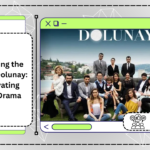What is Labour Day?
Labour Day is a public holiday that is celebrated in many countries around the world. It is a day dedicated to honoring the contributions and achievements of workers and the labor movement. The origins of Labour Day can be traced back to the late 19th century when trade unions and workers’ rights movements fought for better working conditions, fair wages, and shorter working hours.
The History of Labour Day
The history of Labour Day dates back to the industrial revolution when workers faced harsh working conditions, long hours, and low wages. As the labor movement gained momentum, workers began to organize themselves into trade unions to collectively fight for their rights.
In the United States, the first Labor Day parade was held in New York City on September 5, 1882, organized by the Central Labor Union. It was a peaceful demonstration that aimed to highlight the struggles and demands of the working class. The parade was followed by picnics, speeches, and festivities, marking the beginning of an annual tradition.
Canada also played a significant role in the establishment of Labour Day. In 1872, a group of Toronto printers went on strike to demand a nine-hour workday. Their strike was successful, and it inspired other workers across the country to fight for their rights. In 1894, the Canadian government officially recognized Labour Day as a national holiday.
Labour Day Around the World
Labour Day is celebrated on different dates in various countries around the world. In the United States and Canada, it is observed on the first Monday in September. In many European countries, such as the United Kingdom, Germany, and France, Labour Day is celebrated on May 1st, also known as May Day.
While the specific dates may vary, the purpose of Labour Day remains the same – to recognize and appreciate the contributions of workers. It is a day to honor the achievements of the labor movement and to advocate for workers’ rights and social justice.
How is Labour Day Celebrated?
Labour Day is typically celebrated with various activities and events that bring together workers and their families. Parades, picnics, barbecues, and fireworks are common traditions associated with Labour Day.
In many communities, Labour Day parades are organized, featuring marching bands, floats, and displays of solidarity. These parades often include representatives from trade unions, workers’ organizations, and community groups. The parades serve as a reminder of the progress made in the labor movement and the ongoing fight for workers’ rights.
Family-oriented events are also popular on Labour Day. Many people take advantage of the long weekend to spend time with their loved ones and enjoy outdoor activities. Picnics and barbecues are a common way to celebrate, with families and friends coming together to share food, laughter, and good times.
Labour Day also provides an opportunity to reflect on the importance of workers’ rights and the challenges that workers still face. It is a time to advocate for fair wages, safe working conditions, and equal opportunities for all workers.
The Significance of Labour Day
Labour Day is more than just a day off work or an excuse for a long weekend. It is a reminder of the struggles and sacrifices made by workers in the past and the ongoing efforts to protect workers’ rights in the present.
Labour Day serves as a reminder that workers are the backbone of society and that their contributions should be valued and respected. It is a day to recognize the importance of fair and equitable treatment for all workers, regardless of their occupation or background.
On Labour Day, we celebrate the progress that has been made in improving working conditions and the rights of workers. However, it is also a call to action to address the challenges that workers continue to face, such as income inequality, discrimination, and unsafe working conditions.
Labour Day is a time to come together as a community and show support for workers’ rights. It is a day to honor the achievements of the labor movement and to advocate for a fair and just society for all.
So, as we celebrate Labour Day in 2024, let us take a moment to appreciate the contributions of workers and to renew our commitment to fighting for workers’ rights. Happy Labour Day!












